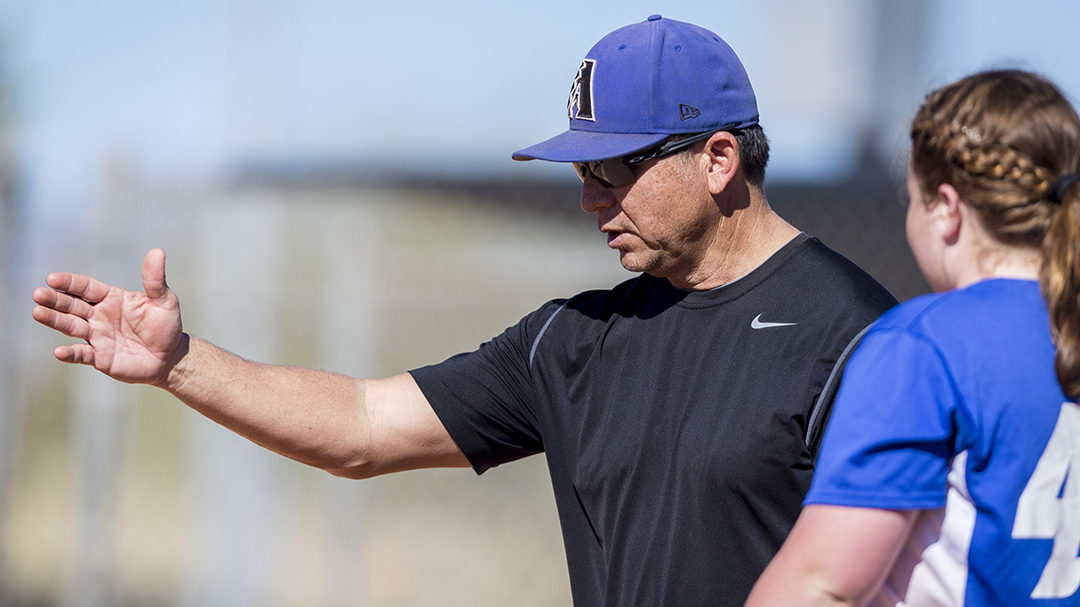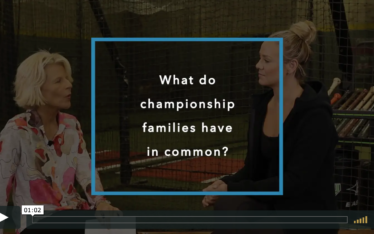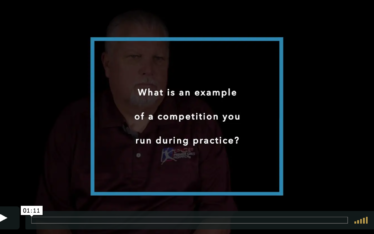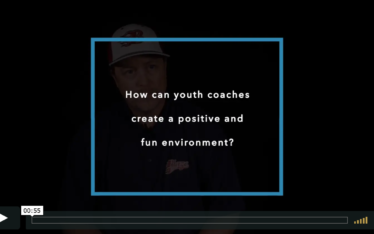Dr. Tim Elmore: Poor Character or Poor Judgement?
ONE Softball has partnered with experts in many fields. In this article, child development expert Dr. Tim Elmore talks about personal character and how one can respond to the almost inevitable moments in which we make mistakes.

Weeks ago, a story broke about a high school football player who did something very dumb. While visiting the University of Georgia on a recruitment trip, Darnell Salomon stole some personal property from a residence hall. It seemed like a good idea at the time… until he was caught and charged with first-degree felony burglary.

photo credit: CIMG2425 via photopin (license)
Coach Mark Richt, who is a stickler for good character, dropped the wide receiver from the Bulldog recruiting board, according to the Athens Banner-Herald. But then something happened: the young athlete responded.
Salomon wrote a letter to Coach Richt, accepting responsibility for his bad character. Then Salomon called Coach Richt to talk about it. He wanted to make things right. Later, he returned to Athens and posted bond for the crime, after which he met with his current coach, who publicly promised that Salomon would be cleared of all charges and was determined to make things right. When Salomon discussed the matter with Rivals.com a weekend later, he called what he did a “really dumb mistake.” His words were: “Everyone makes mistakes. I learned, and I will never do something like that again.”
It was at this point that the Georgia Bulldog coaches promised him a clean slate.
Is it Poor Character or Poor Judgment?
The story is not new. Crimes and mistakes happen every week in NCAA sports. What I have found coaches struggling over, though, is this question:
How do I know if it was poor character… or merely poor judgment?
Seriously. How do you know?
There’s a difference between the two, you know. Poor character is not something you want in any of your athletes. It’s a pattern of selfish behavior, of ego and arrogance and making excuses for wrongdoing. Poor character never “owns” the mistakes it makes and often defends them as being “not that bad.” When an athlete displays poor character, you don’t get the sense they have regrets or plan to repent; you have no hope they’ll turn from the error of their ways. They tend to deflect the attention to someone else, perhaps even blaming someone else for what happened. They don’t demonstrate a feeling of brokenness over what they’ve done. In fact, quite the opposite: they try to prop themselves up by explaining why they did it.
I grew up in Cincinnati during the 1960s and 1970s, watching the Big Red Machine play every summer. Pete Rose was my idol. Charlie Hustle, they called him. He got more hits than any other major league baseball player in history. From his play on the field, he deserves to be in Baseball’s Hall of Fame; but from listening to him off the field, it’s clear he’s never gotten over the gambling problem that got him tossed out of baseball. In his book, My Prison Without Walls, he tries to apologize for his mistake—but he never appears broken over the issue. You get the feeling he doesn’t think he did something that wrong, nor does he deserve the punishment. His former teammates, while respectful, even say so. He continues to interrupt those who ask him about it. He wants to compare his crime to other crimes that are far worse. (Rule #1 Pete—let other people do that for you. You just need to own what you did.) I hope one day Pete makes it into baseball’s Hall of Fame, but I hope he does because he’s genuinely broken for the poor example he set and the lies he told.
I believe there’s a difference between poor character and poor judgment. Almost every person is guilty of poor judgment at one point or another. I sure was. We all have our weak moments, when we succumb to baser impulses. Yet when someone looks at our overall track record, they don’t see a pattern of poor moments.
As a high school athlete, I remember making a stupid mistake. When my coach asked me about it, I turned red with embarrassment. I remember feeling relief confessing my mistake and admitting guilt. I didn’t even dream of trying to diminish its gravity or excusing it as something smaller than what it was. I was sobered by it and ready to receive whatever penalty my coach leveled. Surprisingly, I learned a lesson. By taking a harsh stance on myself, I drew empathy from my coach. When I didn’t try to explain the crime away, he was much more apt to forgive. I learned the lesson: I must discipline myself, so someone else doesn’t have to.
Questions Coaches Can Ask to Determine Between Character and Judgment:
1. When a poor decision is made, does it reflect an isolated incident or a pattern?
2. What do their teammates (or those who know them well) believe about them?
3. How do they interact with past authority figures?
4. Do you see authentic remorse, regret and repentance for what they did?
5. Do they try to explain or defend their wrong choices or mistakes?
6. Do you see any commitment to future change?
The jury is still out on whether UGA will continue to recruit Salomon. The Bulldog football team has taken strong stands on behavioral issues and even pushed for a new rule that eliminates transfer students from coming to the SEC with sexual crimes or domestic abuse on their record. Salomon, the #28 receiver in the nation according to 247Sports composite rankings for 2016, has loads of SEC teams still looking him over, as well as schools like Texas, Oregon, Oklahoma, Florida State and Nebraska.
My hope is that if a team recruits him, despite his crime, he will prove it was merely an issue of poor judgment, not a pattern of poor character. As I said, there’s no place for poor character on our teams, but poor judgment deserves a second chance.

Republished with permission from GrowingLeaders.com





About The Author
Dr Tim Elmore
Dr. Tim Elmore is the founder and president of Growing Leaders, a non-profit created to develop emerging leaders. Elmore trains middle school, high school and college students with the skills they need to become authentic leaders with huge potential to transform society.